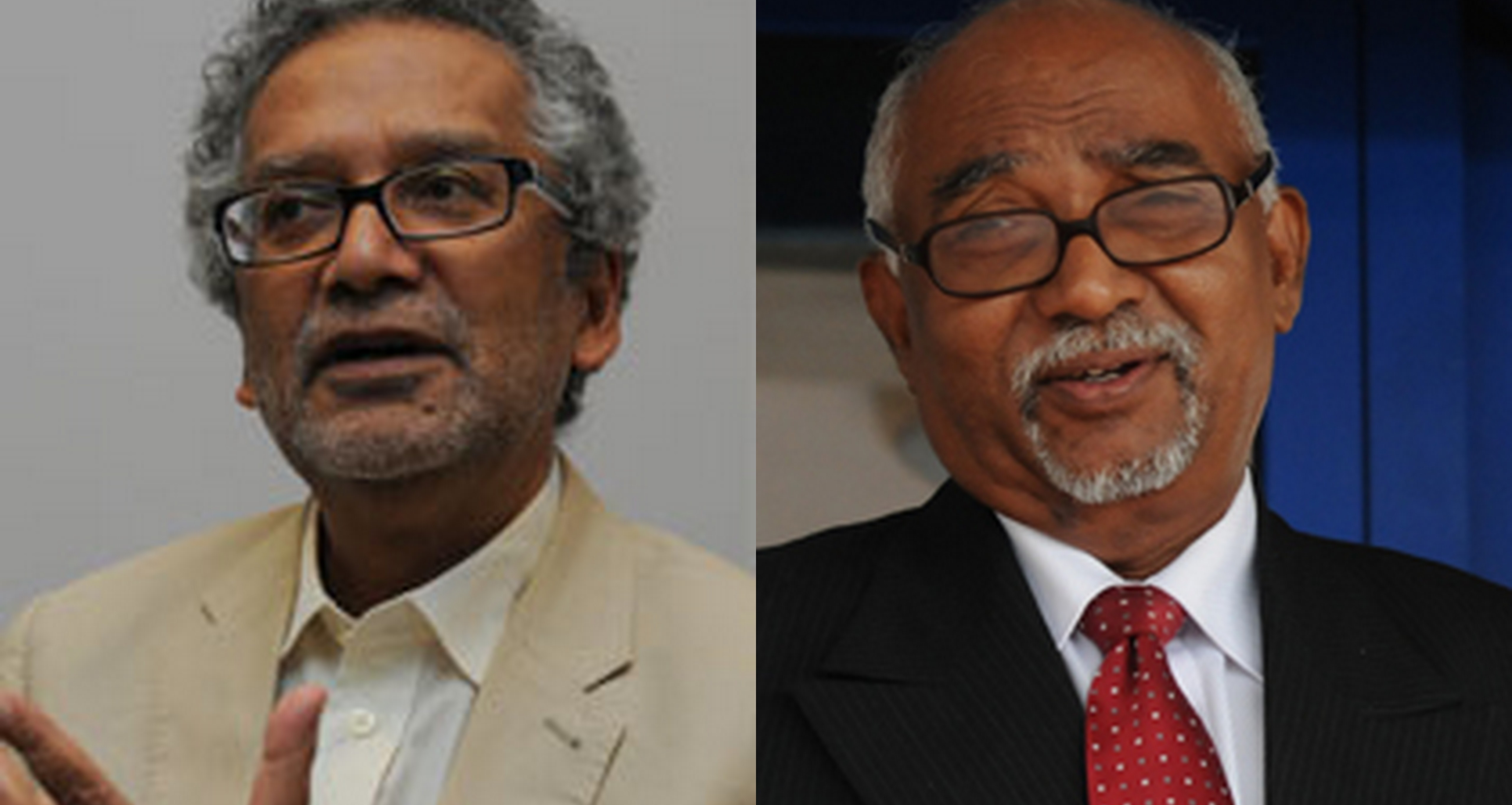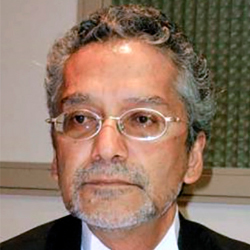Publicité
Nomination d’un PM: l’interprétation de la Constitution fait débat
Par
Partager cet article
Nomination d’un PM: l’interprétation de la Constitution fait débat

Les avis divergent quant à l’interprétation de l’rticle 59(3) de la Constitution consacré à la nomination d’un PM. Les avocats Kris Valaydon et Rajoo Vithilingem se donnent la réplique…
«L’article 59(3) pas applicable en cours de mandat»
Suivant l’article «Appointment of the Prime Minister» de M. Rajoo Vithilingem, dans l’express du 23 septembre, je tiens à préciser que l’article 59(3) se trouve dans un chapitre de la Constitution consacré à l’exécutif. Elle précise la manière de nommer le Premier ministre (PM) et les autres ministres, y compris le vice-Premier ministre et l’Attorney General (AG). Cet article ne s’applique pas lorsque seul le poste du PM est vacant. Il ne s’applique pas non plus lorsque le PM veut céder sa place à quelqu’un d’autre en cours de mandat.
L’article dit simplement que le président doit nommer le PM selon un critère : être un élu qui a le soutien de la majorité des élus. Et, pour nommer ce PM, le président agit selon son propre jugement. Selon l’article 59(3) : The President, acting in his own deliberate judgment, shall appoint as Prime Minister the member of the Assembly who appears to him best able to command the support of the majority of the members of the Assembly, (…)
Mais il ne s’arrête pas là. Après le mot «Assembly», il y a une virgule et la conjonction «and», et la phrase continue, pour dire que le président nomme les autres membres du gouvernement, mais cette fois-ci, sur avis du PM. L’article 59 (3) continue ainsi: and (nous soulignons) shall, acting in accordance with the advice of the PM, appoint the Deputy PM, the AG and the other Ministers from among the members of the Assembly (...)
L’article 59 (3) comprend donc une phrase qu’il faut lire en entier et ne pas s’arrêter à la première virgule. La deuxième partie décrit le contexte dans lequel il faut l’interpréter. Aussi, la séquence des deux phases de nominations ne peut être altérée. Non plus peuvent les deux ‘actes’ que fait le président. Ceux-ci sont par ailleurs indissociables, ne pouvant être séparés l’un de l’autre. Ils font partie d’un même événement : la nomination d’un gouvernement – celle du PM et des ministres, entre autres.
Or, une telle situation ne se présente que lorsqu’un nouveau gouvernement doit être nommé, après des élections générales, car c’est le moment où le président peut activer l’article 59 (3).
Aussi, prétendre que cet article a été écrit afin de pouvoir choisir à n’appliquer que la moitié d’une phrase, d’une partie seulement d’un article de la Constitution relèverait du non-sens. D’où, notre affirmation que l’article 59 (3) de la Constitution ne s’applique pas pendant un mandat déjà entamé, mais est utilisée que pour nommer PM et ministres au début d’un mandat d’un nouveau gouvernement, juste après des élections générales.
Kris M. VALAYDON, Ph.D Avocat
«Half the truth is a lie»
My good friend, Dr. Kris Valaydon, has done me the honour of expressing his disagreement to my interpretation of Subsection 59(3) of the Constitution of Mauritius. He takes me to task for not citing the subsection in full. If I had done so, according to him, I would not have missed, after the third comma, the words “and shall, acting in accordance with the advice of the Prime Minister, appoint the Deputy Prime Minister (DPM), the Attorney General (AG) and the other Ministers from among the members of the Assembly.’’ This is precisely the point: the PM, having been appointed by the President “acting in his (her) own deliberate judgment”, has a personal interest in the constitution of his Cabinet. He has already communicated to her Excellency a list of holders of distinct portfolios. These few will swear the separate oath of ministerial office. This is where the second leg of the famous subsection comes into play. Her Excellency cannot acting in her own deliberate judgment appoint the DPM, the AG and other ministers as this would definitely be a naked usurpation of the PM’s prerogative. So, the President is required in this particular instance to act ‘‘in accordance with the advice of the PM.’’
So, Dr. Valaydon may unintentionally, through his remark that I should have quoted the whole subsection instead of only the first half, impute to me a desire to lie or to comment out of context. As a barrister he surely knows that a half-truth is a lie and, as an academic researcher, he knows of our duty to ensure that our contentions should be backed by authority, I would like him to refer me to the authority that the mode of appointment of the PM depends on whether it is at the beginning of a new mandate or at another point in the life of Parliament. Does he not agree that what happened with former British Prime Minister Major and the current Theresa May is subsection 59(3) in action in a different context? Would he not agree that Prof. S.A de Smith wrote the first leg of Ss 59(3) of our Constitution with British unwritten constitutional convention in mind?
I have had the privilege of reading Dr. Valaydon’s paper on the same subject on the same day that my paper appeared. He makes some very interesting points but I don’t agree when he considers the British and Mauritian Constitutions as two completely different animals. The main differences, according to me, are that our constitution is written and the English Constitution is unwritten. The UK is a monarchy whereas we are a republic, the Parliamentary system in Mauritius is unitary whereas in the UK, it is bicameral and, last, while in the UK Parliament is supreme , in Mauritius parliamentary supremacy is subject to the Constitution. The corollary is that the Supreme Court will strike down an Act of Parliament which inconsistent with our constitutional provision. A last point which I borrow from our highest judges is that “the legislator never acts in vain.’’ In my interpretation of subsection 59 (3), I have prayed in aid canons of statutory interpretation such as the Literal and the Purposive approaches.
Rajoo VITHILINGEM MA, LLB, PGDRHM, DPAM, BA and Ph.D Researcher
Publicité
Publicité
Les plus récents







